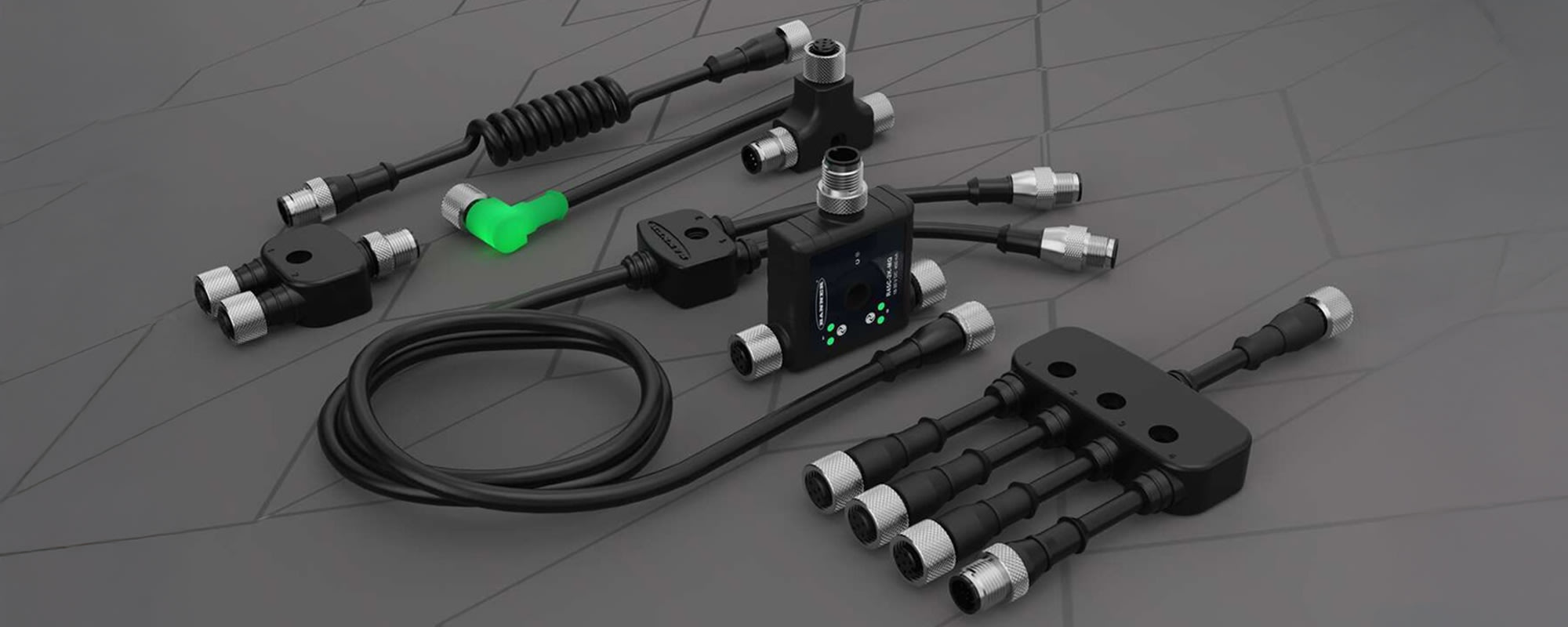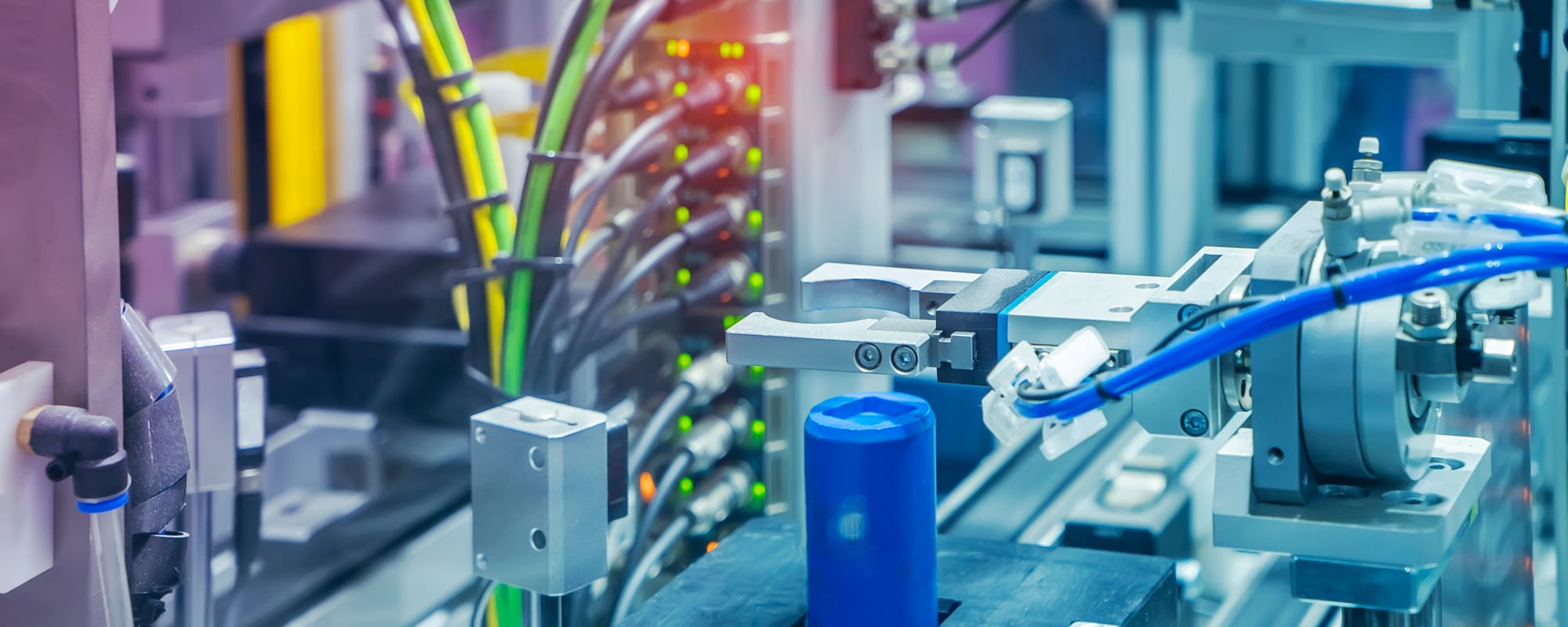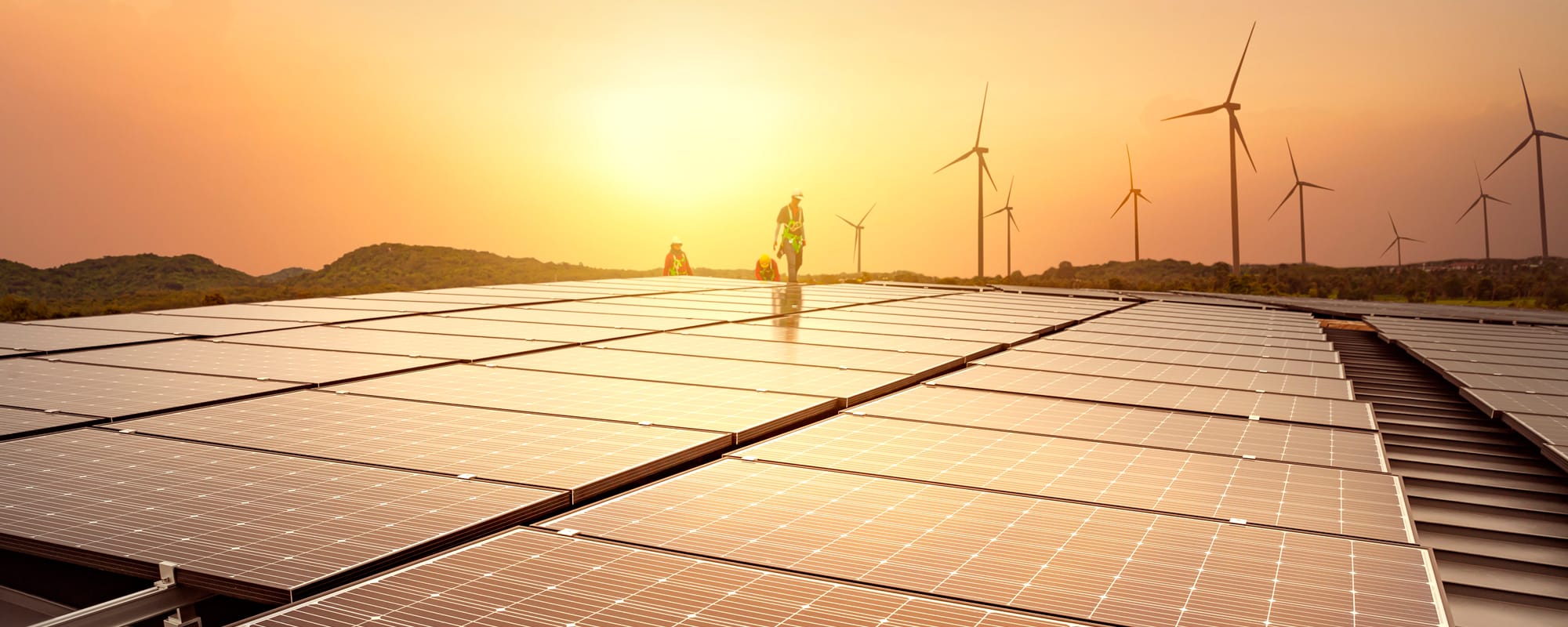RS Connect 2024 brought members of the industrial supply chain together to share product innovations and expert perspectives on current challenges and emerging trends. This three-part RS Connect Insights series shares exhibiting suppliers’ responses to questions about three timely topics: IIoT technologies, industrial sustainability, and skilled labor shortages.
This year’s biennial RS Connect event — RS Connect 24: The Power of Partnership — included a series of panel discussions that invited a selection of industrial automation and manufacturing experts to share insights into timely topics including the IIoT, industrial sustainability, and skilled labor shortages. To further these discussions, we asked exhibiting suppliers to share additional insights into these three topics. Part 1 of our three-part RS Connect Insights series features supplier insights into the IIoT[CS1] . This second installation in the series shares their unique perspectives on industrial sustainability.
Sustainability is a crucial differentiator in the industrial marketplace, with over 58% of manufacturing executives viewing sustainability as essential to future competitiveness. Finding and designing sustainable solutions — from the supply chain to operations to products and services — not only helps meet broad environmental and social goals; it also positively impacts companies’ bottom line. Research shows that companies with robust sustainability programs typically outperform their competitors over time.
The demand for sustainable solutions keeps growing, fueled by both regulations and customer preferences, but implementing sustainability practices can be challenging. Partnership and collaboration are key to overcoming these challenges, particularly in manufacturing operations and the supply chain.
To learn about how leading industrial suppliers are adapting to the growing demand for sustainable products and practices, innovating to reduce environmental impact of products and services, and reducing energy consumption, we spoke to four industry experts:
- Cliff Austin, Regional Sales Manager – Southeast at Phoenix Contact
- Chad Murff, Vice President of Sales – Gulf Region at Eaton
- Tom Wess, Product Manager – Circular Plastic Connectors (CPC) at TE Connectivity
- Mike Melchers, Vice President of U.S. Sales – Channel OEM at ABB Electrification
Q: What innovations have you introduced to reduce the environmental impact of your products or services?
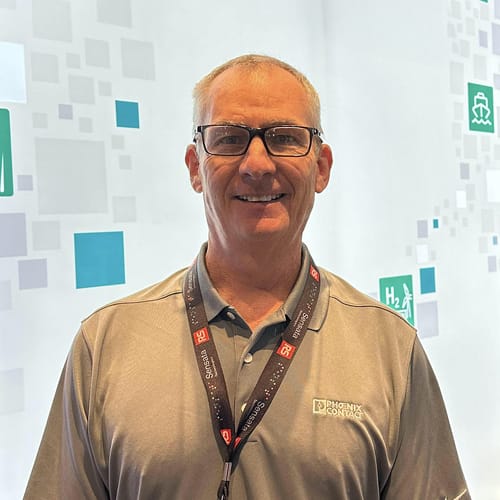
Cliff: We do a lot of things to improve sustainability on the operational side of our business. For example, we installed solar panels on top of our buildings to supply power to our facility and charging stations for electric vehicles. The overarching strategy we have as a company, which we also apply to our customers, is that we’re on a journey toward an all-electric society. The products we manufacture integrate right into that initiative — whether that’s going green through windmill technology, solar technology, and electric vehicles or moving power from one type of power density system to a renewable source, such as natural gas to electric power or coal to electric power. An all-electric society is where we see the world going and we’re taking action to be part of that.
Q: What innovations have you introduced to reduce the environmental impact of your products or services?
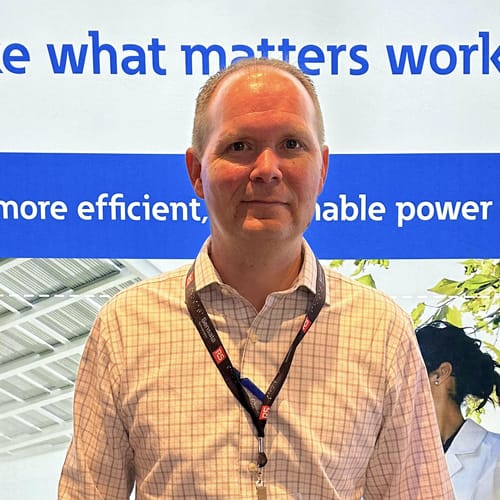
Chad: There are many examples. One of which is that we constantly measure the energy output at our Eaton Puerto Rico facility. Utility prices there have risen by more than 50% over the last five years, so Eaton has significantly improved our energy efficiency and consumption. We conducted studies to determine which machines are causing energy spikes and what time of day spikes occur most often, and we’re using that information to bring down our peak loads and energy consumption. For example, we utilize the ability to measure and manage energy on our breaker trip units and adjust our variable frequency drives’ ramp-up speed, and we analyze how the production machines are operating and adjust coordinates accordingly to bring down these peak loads. We’ve also implemented a solar farm at that facility, which supplements energy at peak operating times to minimize utility bills and provides a microgrid solution for potential damage resulting from storms.
Q: What sustainability metrics are most important to your organization and how do you track them?
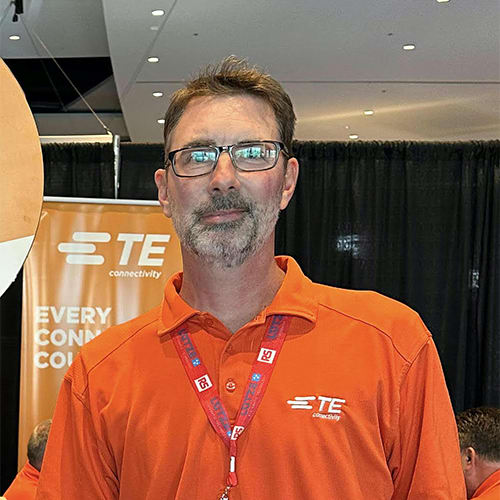
Tom: With our TE circular plastic connectors, we’re really paying attention to what green materials we can use that help us minimize our own carbon footprint as well as our customers’. Our advanced engineering team is paying close attention to different materials that we can use in place of the current thermoplastic material to meet our current product standards and the quality metrics that customers require. In the end, we’re trying to utilize new materials that keep costs in line for both TE and customers without sacrificing quality. These innovations won’t happen overnight. It will take time for our engineering team to find new, more sustainable materials, but it’s something we’re striving for to reduce our carbon footprint.
Q: How do you collaborate with customers to help them achieve their sustainability goals?
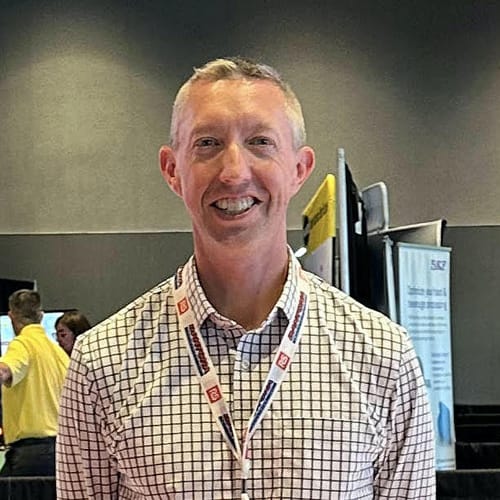
Mike: Sustainability is very important to ABB, and it starts from within our organization. One initiative we have is ABB Mission to Zero — a commitment to be carbon-neutral by 2030 and achieve net zero emissions by 2050, which is something we’re doing to ensure that all of our operations are sustainable. One example of this commitment is in our facility in Frosinone, Italy, where we make our breakers. This facility is 100% sustainable, using renewable electricity to produce over 35 million breakers every year at that site alone. ABB is also helping to create a more sustainable future through its partnership with NASCAR. NASCAR is working towards net zero carbon emissions in all of its facilities by 2035, and ABB has been a critical partner in helping the organization achieve that goal, as well as in building its first electric race car.
Dive Deeper
As customers increasingly demand more sustainable products, organizations throughout the value chain — from material suppliers and product manufacturers to distributors and customer-facing solutions providers — must work together to find innovative solutions to common sustainability challenges. Companies including Phoenix Contact, Eaton, TE Connectivity, and ABB Electrification are doing their part, but there is more work to be done.
RS helps serve as a comprehensive resource for sustainable products and expertise. To learn more about the RS portfolio of sustainable industrial products, check out the Better World products page. For more expert insights into industrial sustainability, energy efficiency, and Industry 4.0 solutions that can help streamline automation and control processes and improve operating efficiency, click the links embedded here to access pertinent selections from the RS Expert Advice series.
For more expert insights from exhibiting suppliers at RS Connect, check out RS Connect Insights Part 1: IIoT Technologies [CS1] and keep an eye out for Part 3: Skilled Labor Shortages[CS2].
To learn more about sustainable solutions available from the manufacturers featured here, check out the RS manufacturer spotlight pages for ABB Electrification, Eaton, Phoenix Contact, and TE Connectivity.

